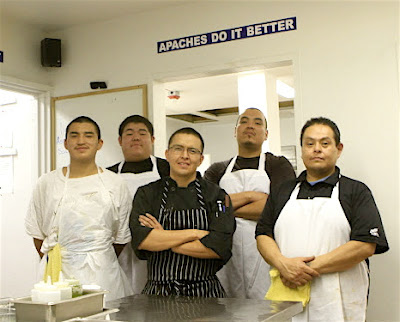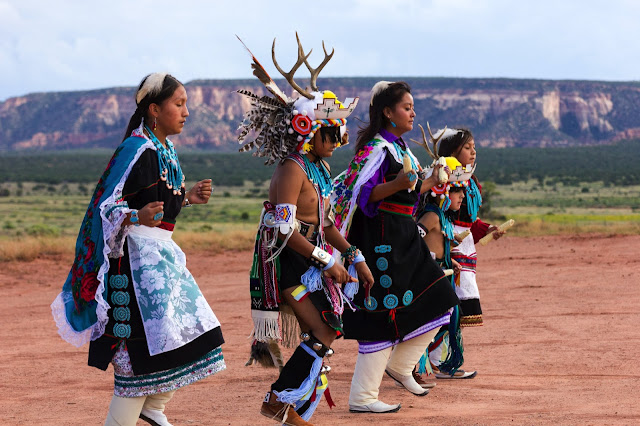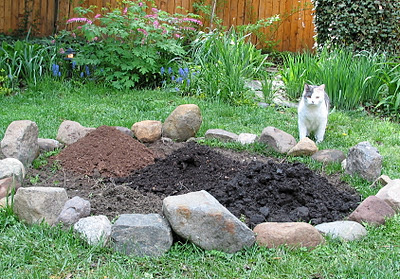Apache Chef Nephi Craig Plans Native-Foods Conference
Nephi Craig, executive
chef of the fine-dining restaurant at the White Mountain Apache Tribe’s Sunrise
Park Resort Hotel, has put out a call for proposals for an early-November indigenous
food-and-culture conference. It will take place at the resort, near Greer, Arizona. The
setting is the glorious high-desert mountains of northern Arizona, with vast,
gaping valleys and soaring mountains dotted with juniper and cacti.
Craig, shown at center with his staff, is White Mountain Apache and Navajo. He has classical-French culinary training and worldwide experience as a chef and hopes the conference will attract a
range of community members and outside folks interested in exploring many aspects and
applications of Native foodways. “Native foods are not a trend,” says Craig,.
“They are a way to recover our communities and decolonize ourselves.”
Craig
says Native people are emerging
from what he calls “the Great Interruption” in their foodways: “Pre-contact, we
were expert farmers, hunters, gatherers, fishermen and cooks. Then we suffered
a violent clash of cultures that lasted 500 years and ended in the reservation
system and cheap, high-fat, high-carbohydrate commodity foods. They, in turn,
produced rampant killers: diabetes, heart disease and obesity.” As a result, he
says, healing is the most important ingredient in Native cuisine.
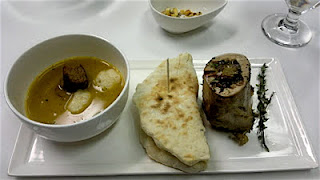 The conference’s stellar
list of partners includes Native chefs and restaurateurs April “Bleu” Adams, Dine’/Hidatsa/Mandan;
Bertina Cadman,
Dine’; Arlie Doxtator, Oneida; Mark Mason, Dine’/Hidatsa/Mandan; and
Chris
Rodriguez, Xicano; along with scholar Claudia Serrato, P'urhépecha.
Organizations that have signed on include the White Mountain Apache Tribe; the
Native American Culinary Association, which Craig heads; Johns Hopkins Center
for American Indian Health; and the People’s Garden, a local community garden
where Craig and his all-Apache culinary team have given cooking demonstrations. Here’s an interview with Craig:
The conference’s stellar
list of partners includes Native chefs and restaurateurs April “Bleu” Adams, Dine’/Hidatsa/Mandan;
Bertina Cadman,
Dine’; Arlie Doxtator, Oneida; Mark Mason, Dine’/Hidatsa/Mandan; and
Chris
Rodriguez, Xicano; along with scholar Claudia Serrato, P'urhépecha.
Organizations that have signed on include the White Mountain Apache Tribe; the
Native American Culinary Association, which Craig heads; Johns Hopkins Center
for American Indian Health; and the People’s Garden, a local community garden
where Craig and his all-Apache culinary team have given cooking demonstrations. Here’s an interview with Craig:
Why
a conference?
As
an Apache, you’ve inherited a holistic food tradition, yet the people coming
together will have narrow specialties. Is there a conflict?
My community is hurting, and there is no quick fix
for the problems here. I could get stressed out naming the ills—political,
legal, social—but it all ties back to wellness and mental health. With the
conference, we will be doing something positive, showcasing local people with
special talents and information, as well as visiting experts, and talking about
Apache values and their importance. We’ll help underline that the culture is
intact and valuable.
How
is the People’s Garden a part of this?
Will
your Sunrise Park Resort team be around during the conference?
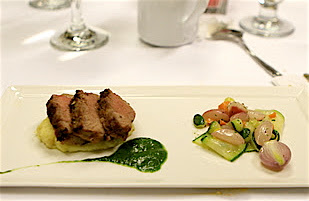 They certainly will. My staff is so important to
me. My training, experience and theories have all come together in this kitchen.
We’re an all-Apache team producing food collaboratively in our sacred high
mountains. We have taken some things from the classical French culinary canon,
but other things we’ve modified—for example, making our kitchen less
hierarchical in a way that’s more comfortable for us as Apaches. My goal is to
have each of us think of ourselves as able to be both teacher and mentor every
day and to carry this idea throughout our lives. This concept is working, too:
team members’ skills have grown quickly, and of course, ironically, that means
other restaurants are hiring them away. But that’s natural, and supporting
their personal development is what it’s all about.
They certainly will. My staff is so important to
me. My training, experience and theories have all come together in this kitchen.
We’re an all-Apache team producing food collaboratively in our sacred high
mountains. We have taken some things from the classical French culinary canon,
but other things we’ve modified—for example, making our kitchen less
hierarchical in a way that’s more comfortable for us as Apaches. My goal is to
have each of us think of ourselves as able to be both teacher and mentor every
day and to carry this idea throughout our lives. This concept is working, too:
team members’ skills have grown quickly, and of course, ironically, that means
other restaurants are hiring them away. But that’s natural, and supporting
their personal development is what it’s all about.
Has
your blog (apachesinthekitchen.blogspot.com) attracted attention to NACA and
your work?
Are
you learning as you go?
Text c. Stephanie Woodard; photographs courtesy Nephi Craig.
